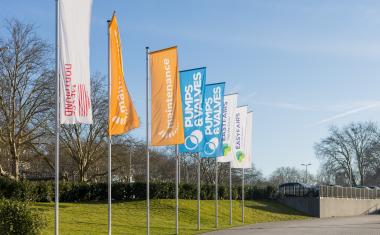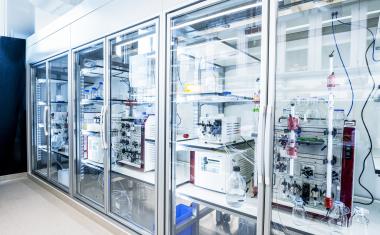Baxter Profit Higher; Sales Seen Rising 10% in 2013
Medical device and bioscience company Baxter International reported higher quarterly earnings on Thursday and forecast sales growth of 10% for 2013.
Fourth-quarter sales were particularly strong in its bioscience business, which sells blood therapy products, including hemophilia treatments and plasma proteins, the company said. U.S. demand was especially robust.
Baxter executives told a conference call that capacity constraints continue to limit production of plasma proteins.
The company, which also makes medical infusion pumps and equipment used for kidney dialysis, said quarterly net profit was $494 million, or 89 cents per share, up from $463 million, or 82 cents per share, a year earlier.
Excluding one-time items, Baxter earned $1.26 per share, matching the average estimate on Wall Street, according to Reuters I/B/E/S.
Sales rose to $3.75 billion from $3.59 billion.
For the current quarter, Baxter forecast earnings of $1.03 to $1.05 per share before special items, with sales growth of 2% to 3%.
For the full year, it expects earnings of $4.60 to $4.70 per share before special items, and cash flow from operations of $3.3 billion.
The previously announced acquisition of Gambro, expected to close by the end of the second quarter, will reduce full-year 2013 earnings by 10 cents to 15 cents per share, Baxter said.
Including Gambro, Baxter said its forecast reflects 2013 sales growth of about 10% before the impact of foreign exchange.
Separately, Baxter said it had agreed to acquire an investigational hemophilia compound, OBI-1, and related assets from Inspiration BioPharmaceuticals, and certain other assets from Ipsen Pharma in conjunction with Inspiration's bankruptcy proceedings.
Baxter will make an upfront payment of $50 million and additional payments of up to $20 million based on winning regulatory approvals in the United States and elsewhere.
Baxter executives said on the conference call the company expects to submit an application for the compound later this year to the U.S. Food and Drug Administration, which has agreed to consider it on an expedited basis. The executives said they did not expect approval in Europe until 2015.
They said OBI-1 could eventually reach annual sales of $200 million.
"It's not a big product. This is more a strategic move to strengthen their competitive position in recombinant therapy," said Danielle Antalffy, an analyst with Leerink Swann.


















